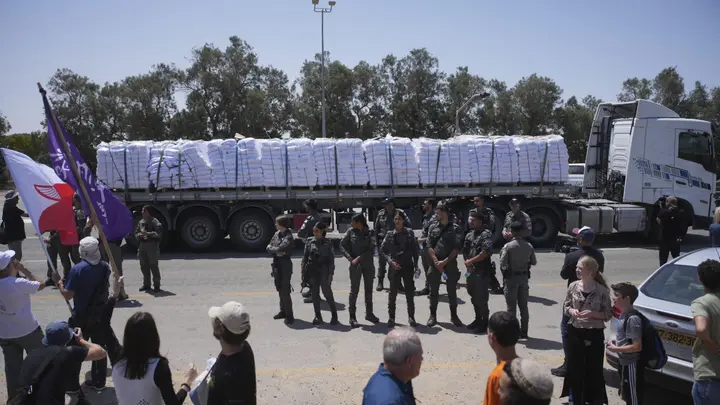As international leaders and regional stakeholders grapple with how to stabilize Gaza in the aftermath of conflict, a provocative question has emerged: Could private security contractors in Gaza serve as a viable “day after” solution?
The idea is controversial but not without precedent. Around the world, private security contractors (PSCs) have stepped into war-torn or politically fragile regions to fill the gaps left by weakened or absent government forces. In the case of Gaza, where governance remains deeply contested and local security institutions are either distrusted or incapacitated, some experts are now weighing the potential of using PSCs to ensure order, protect infrastructure, and pave the way for rebuilding efforts.
The Post-Conflict Security Dilemma
The “day after” concept refers to the period immediately following the cessation of hostilities in a conflict zone. In Gaza, the situation is especially complicated. Traditional state actors—whether Israeli forces, Palestinian factions, or even regional powers—face deep mistrust from various segments of the population. This vacuum creates a dangerous space where chaos, looting, or even renewed militant activity could thrive.
In such conditions, the case for private security contractors in Gaza begins to take shape. These firms can offer rapid deployment, operational flexibility, and specialized services ranging from infrastructure protection to logistics coordination.
What Are Private Security Contractors?
Private security contractors are non-state entities hired to provide services traditionally performed by military or police forces. These may include guarding personnel or property, escorting humanitarian convoys, or advising and training local forces. Their presence in international conflict zones has become increasingly common since the early 2000s, especially in Iraq, Afghanistan, and various African nations.
Applying this model to Gaza would be unprecedented—but not inconceivable. Private security contractors in Gaza could act as a transitional force, tasked with maintaining civil order and safeguarding rebuilding projects until longer-term governance structures are established.
Potential Benefits of Using PSCs in Gaza
Rapid Deployment and Flexibility
One of the main advantages of hiring private security firms is their ability to mobilize quickly. Unlike multinational peacekeeping forces, which require prolonged diplomatic negotiations and logistical coordination, PSCs can be operational within days or weeks.
Reduced Political Risk
For governments reluctant to commit troops to Gaza, outsourcing security to contractors offers a lower-risk alternative. This allows countries to support stabilization efforts without facing political fallout from domestic constituencies.
Specialized Expertise
Many private contractors employ former military personnel, intelligence officers, and conflict-zone professionals. Their experience in managing high-risk environments could be invaluable in a place as volatile as Gaza.
Risks and Concerns
Despite these potential advantages, deploying private security contractors in Gaza is not without serious risks.
Accountability Issues
One of the biggest criticisms of PSCs is the lack of accountability. In past deployments—such as Blackwater’s presence in Iraq—there have been documented cases of abuse, misuse of force, and legal ambiguity. In Gaza, such misconduct could inflame tensions and undermine peace efforts.
Undermining Local Legitimacy
Heavy reliance on foreign contractors could delegitimize any future Palestinian governance. The optics of foreign forces—however “private” they may be—patrolling Palestinian streets might reinforce perceptions of occupation or external control.
Cost and Oversight
Engaging private contractors is expensive. It also requires a framework for financial and operational oversight—something that might be difficult to implement in a fragmented political landscape like Gaza’s.
Legal and Diplomatic Hurdles
International law offers limited, albeit evolving, guidance on the use of PSCs in post-conflict regions. Documents like the Montreux Document outline best practices for employing private military and security companies, but enforcement mechanisms are weak.
Moreover, political buy-in from major stakeholders—including the U.S., European Union, and regional Arab states—would be crucial for legitimizing any deployment of private security contractors in Gaza. Israel and the Palestinian Authority would also need to agree on rules of engagement, jurisdiction, and coordination with humanitarian groups.
Alternatives to Private Security Contractors
There are alternative paths to stabilizing Gaza without relying on private firms. These include:
- Multinational Peacekeeping Forces: Though slower to organize, UN or Arab League-led missions could offer greater legitimacy and accountability.
- Empowering Local Police Forces: With adequate training and funding, local Palestinian security agencies could eventually take the lead in maintaining law and order.
- Civil Society and Development-Based Stability: Strengthening institutions through aid, education, and economic development could foster long-term peace without militarized solutions.
Conclusion: A Controversial Yet Compelling Option
The idea of deploying private security contractors in Gaza may sound radical, but in a region where traditional solutions have repeatedly failed, it deserves serious consideration. If implemented with rigorous oversight, clear mandates, and international cooperation, PSCs could help bridge the dangerous gap between conflict and recovery.
Still, the long-term stability of Gaza cannot depend solely on foreign contractors. They may be part of the solution—but never the whole. The ultimate goal must be to create a secure, self-governing, and peaceful Gaza led by and for its people.
Never Miss a Beat! Subscribe for the Latest News & Exclusive Updates!
